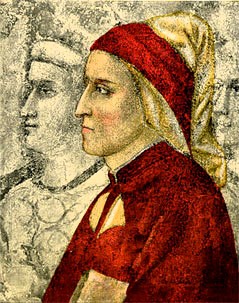 Image via Wikipedia
Image via Wikipedia
After being challenged by the writers of Tapestry of Grace curriculum to read their high school level literature which is the literature of the time studied, I've found this often stated truism isn't true.
I've always been aware that some historical novels don't exactly get their details right and that often characters are portrayed in ways that don't really fit with the time period. Further it is clear that different periods of historical fiction write differently about a time period than each other. I probably would have agreed that the ideals found in historical characters mouths and thoughts are thrust back into the past from the time of the writer.
But until you've delved into literature actually written during the time period it isn't clear just how different people in the past thought. Just how different and shocking the past can be.
My best examples come from my present year's readings which thus far encompass medieval and renaissance times. But one Roman piece was so different and so flew in the face of what I've heard said and preached about Roman times that I need to mention it. Lately I've often heard commentators talk about how New Testament writers were actually much more respectful of marriage than were those of the surrounding Jewish and Greek culture. I agree that is the case, Greek's didn't raise women and marital faithfulness very high. But in Virgil's Aeneid written in the decades just before Jesus' birth we have a different picture. Now family is raised very high. Aeneid must turn from his love interest (who also could give him power and money) to instead continue on to find his fate with his family in Italy not Carthage.
On to medieval times and suppose for instance you were reading a novel about Charlemagne. Would you expect to find in it a bishop who rides with Charlemagne as a warrior? How would this character be described? Would he be a positive or negative character?
Yet, in the Song of Roland written about 200 years after this time period we find just that. The only real details we are given about this man is that he is brave and a good fighter. I can't imagine such details in a novel written today.
In Beowulf you find the odd clash of a Christian writer writing glowingly of pagans who lived about 200 years before. In one of two commentaries supplied by Norton the scholar claims that the writer was respectful of these pagan's religion. But in truth that was his (the scholar's) opinion. It is clear that the writer admires these men of the past, but still thinks they are doomed.
In my final work, I found myself on a voyage through hell. A hell populated with notable people of the writer's day. If such a novel was written today who would be there? Hitler, Stalin, other super bad guys right? Would you put any relgious figures there, if so which ones? Would a writer in a fairly controlled society where a dominant ruler and religious rulers could easily condemn you to death for a slight include those folks in his work in a negative light? Especially if he wasn't writing for political or religious reasons?
Yet, again, right there in the Inferno is Dante with hordes of clerics, bishops, and yes, even popes. Further he even includes that the current pope will be joining the previous one in the same hole in Hell. All very odd and shocking to my modern mind. It makes me reevaluate many things: how much control rulers had in this past time and how religious folk were viewed by others in their culture are just two of the points I find myself considering.
I find myself becoming cautious about whether books written about a past long gone can really capture that time. Yes, they may get many historical details correct, but will they be able to capture how differently people thought then? Will their heroes and heroines instead think like modern Americans?
Certainly by the time your student reaches high school, it is time to read some of these pieces of literature and ask how they differ from the historical novels not written in the time period you've assigned. Will this be easy reading? No, but it will open the past in a way historical fiction cannot.
![Reblog this post [with Zemanta]](http://img.zemanta.com/reblog_e.png?x-id=448d391d-94f2-4dc7-994f-1983da90aa1e)



0 comments:
Post a Comment